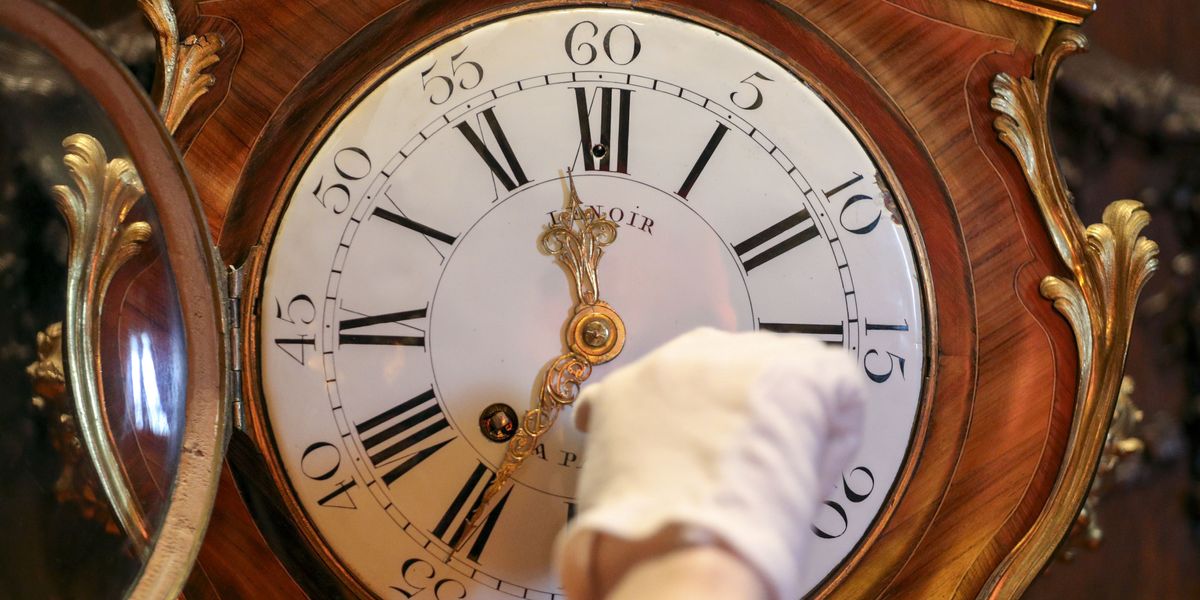As the nights draw longer, many Britons will be anticipating shorter days and cooler weather.
While some may be dreading the wintery conditions, others will be looking forward to an extra hour in bed in the morning.
Although the clocks go back around the same time every winter, it’s not on the same date every time.
However, the clocks will go back within the next week to allow Britons to get as much daylight as possible.
Clocks are set to go back this weekend
PA
A Government spokesperson said: “In the UK the clocks go forward one hour at 1am on the last Sunday in March, and back one hour at 2am on the last Sunday in October.
“The period when the clocks are one hour ahead is called British Summer Time (BST). There’s more daylight in the evenings and less in the mornings (sometimes called Daylight Saving Time).
“When the clocks go back, the UK is on Greenwich Mean Time (GMT).”
This year, the clocks will go back by an hour next weekend, on Sunday, October 27.
LATEST DEVELOPMENTS:
Clocks are going back on Sunday, October 27
Getty
It comes as researchers are looking to analyse the impact of how the annual switch back to winter time affects people’s wellbeing and time perception.
Professor Ruth Ogden from Liverpool John Moores University is leading a study into the impact of the autumn change and how these biannual events affect our perception of the passage of time.
She said: “I’m interested in trying to understand how it feels when your day-to-day sense of time is disrupted by an external force: do you feel like you’ve got more or less time, and higher or lower levels of wellbeing?
“Time is a hugely overlooked element of psychology. Our lives are structured by a clock and we all have an internal representation of time, yet we have a really poor understanding of how people perceive time and whether we could potentially modify people’s experiences of time to create improvements in wellbeing.”
The study is open to all UK adults and involves completing an online survey about their day-to-day lives and the amount of time pressure they are experiencing.
One question Professor Ogden and her colleagues hope to answer is whether socially marginalised groups, or those who are struggling with time pressures, such as busy parents, experience the clock change differently to people who have more control over their time, reports The Guardian.
Sociology Professor Patricia Kingori at the University of Oxford’s Ethox Centre said: “We’re particularly interested in the relationship between time and power, and how when other people are in control of time, it can create various types of injustice for certain groups.”

